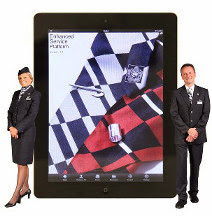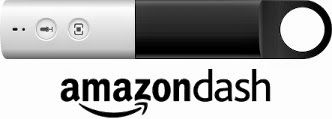
There’s a lot of talk within loyalty about the increasing volume of customer interactions and how these are being enabled through mobile devices, wearables and the Internet of things.
Indeed, Microsoft consider it so important that they’ve apparently setup a special task force to develop it further. Whether it's Smart watches, fitness wristbands or intelligent eye-wear, there’s a whole host of new consumer channels, devices and ultimately data heading our way.
However the real benefit may not be in getting consumers to don these products, but getting the employees to instead.
Giving employees access to real-time information on a customer may be the thing that gives a brand the edge over it’s rivals.
As ever, the airlines are at the forefront of this revolution with many enabling access to customer information to front line staff through a variety of devices. Delta for example recently announced that it’s equipping it’s flight attendants with tablets, highlighting the benefits by saying:-
"In addition to its functionality as an in-flight sales device and replacement for the on-board manual [it will] enable flight attendants to [..] provide information for personalized service, including customers' frequent flyer status and potential need for special services during flight."
British Airways was one of the first carriers to issue a mobile device to staff with the intention of improving customer service and interactions. Called the Enhanced Service Platform or ESP for short, the naming of the device seems indicate their intention for staff to be empowered with what customers might perceive as an almost psychic capability. Their platform, developed in house, is reported to allow staff to access details on key high spending customers including their previous travel arrangements, where they are seated, who they are travelling with and their loyalty status. It can also be used to lodge customer complaints immediately.
The service would seem to be valued by both the staff and customers with a flight attendant quoted as saying:-
“I’m ahead of myself in knowing where our corporate and high-value customers are sitting, and who needs help,” Kaur, a cabin-service director, BA’s highest rank of flight attendant, said in London following a flight from Istanbul. “They look at you and say ‘have you been on a special course?’”
It would also appear to get some great results with customer satisfaction for Gold members reportedly up 14% since the original rollout initiative.
Never happy to be a follower, Virgin Atlantic has gone one better by looking to equip it’s First Class concierge staff with wearables including the Sony SmartWatch and Google Glass to provide them with personalised information on the passenger they are interacting with. One of the key aspects was the personal touch that the technology enabled, removing the barrier between the staff member and the customer. Virgin reported that:-
“The trial helped reduce the number of times that a Virgin Atlantic agent had to go behind a desk to look something up for a passenger, which would break eye contact – apparently vital to ensuring a “VIP customer experience” [and] also negated the need for any radio communications between staff, as all the information needed for each passenger was available through the unit."
This is not just limited to airlines however.
Retailers are also looking to equip staff with mobile technologies to enhance customer service. In the UK for example, fashion retailer Monsoon has started equipping staff with an iPad that allows them access to the complete product range and stock, so they can help a customer locate an item wherever it may be.
AT&T in the US plans to go further and completely remove their traditional POS cash registers. Instead, AT&T store employees will be equipped with tablets and mobile POS systems to facilitate the purchase at the point of experience - when the customer is looking at and playing with the product. AT&T Chief Marketing Officer David Christopher is quoted as saying:-
"It's a pretty radical departure from what we've done in the past, [..] We want people to try, play with and ultimately buy our products...If [shopping] was just transaction based, customers could do it on the web."
There does seem to be a difference however between how retailers and airlines are using tablets with staff.
Whilst for the airline it is predominantly to improve the customer experience and to personalise the service, for retailers it seems to be to make the purchase process more streamlined and ensure they can get what the customer wants.
For retailers however there doesn’t appear to be a desire to use previous customer purchase behaviour and preferences to actually personalise the shopping experience. This would seem to be a missing piece of the puzzle as this is where loyalty data really comes into it’s own and would truly deliver on that retail loyalty promise of the “cornershop experience”. A little of the BA ESP for retailers would probably go a long way.
